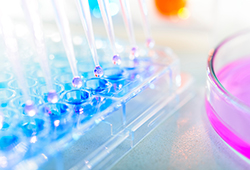 According to the Korea Pharmaceutical Manufacturers Association, the biosimilars market in South Korea will grow to 150 billion won (~$130 million) by 2019, nearly doubling in size from its 2013 value. Six biosimilars have been approved in South Korea since 2012, and dozens of other biosimilars are currently in the development pipeline. Contributors to the domestic market’s rapid growth are the South Korean government’s support of the biosimilars industry as well as major investments in biosimilar development by companies like Celltrion and Samsung Bioepis.
According to the Korea Pharmaceutical Manufacturers Association, the biosimilars market in South Korea will grow to 150 billion won (~$130 million) by 2019, nearly doubling in size from its 2013 value. Six biosimilars have been approved in South Korea since 2012, and dozens of other biosimilars are currently in the development pipeline. Contributors to the domestic market’s rapid growth are the South Korean government’s support of the biosimilars industry as well as major investments in biosimilar development by companies like Celltrion and Samsung Bioepis.
South Korea hopes that its share of the global market for biosimilars will grow similarly rapidly, with a stated goal of controlling 22% of the market by 2020. In support of this goal, the South Korean government has invested heavily in domestic biopharmaceutical companies by providing capital and regulatory assistance. For example, in 2011, the government reportedly began a consulting program to help South Korean biopharmaceutical companies understand the regulatory process for biosimilar approval at home and abroad. And in 2012, the government invested a reported 35% of the national medical R&D budget in biosimilars development.
South Korea’s early investments in the biosimilars industry are already paying off for two companies in particular, Celltrion and Samsung Bioepis, both of which have received approval for biosimilars of blockbuster drugs. Celltrion, whose infliximab biosimilar is currently approved in dozens of countries, is aiming for $1 billion in global sales of the drug. The company recently disclosed that it intends to invest an additional $275 million at its Korean manufacturing site to more than double its production capacity by 2021. Samsung Bioepis, with EU-approved etanercept and infliximab biosimilars, also expects to reap a windfall from its drugs, with a revenue target of 1 trillion won (~$872 million) by 2020. Samsung Bioepis intends to invest $740 million to double its own production capacity by September 2018.
Big Molecule Watch will continue to track the development of biosimilar products in South Korean biopharmaceutical companies.
